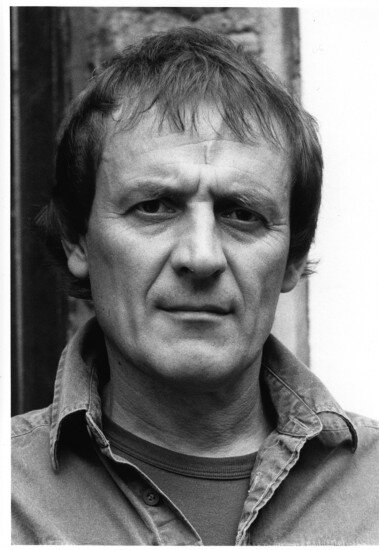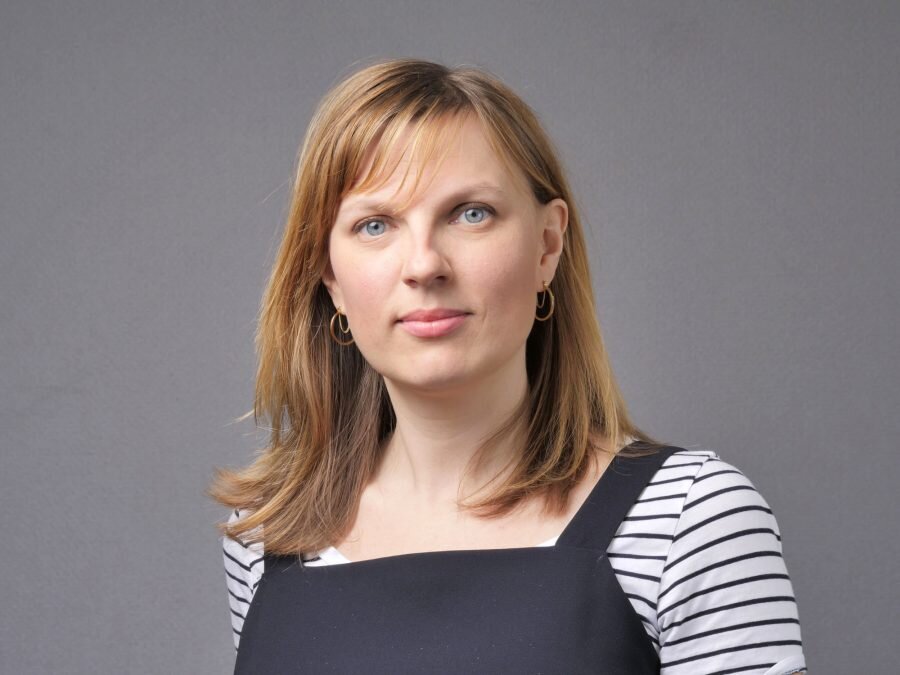Tony Harrison: Them and Uz
Screened online 18 - 22 October 2020 in collaboration with Durham Book Festival
New Writing North screened this thoughtful Arena film from the BBC archives, directed by Nigel Williams. Harrison’s story and poetry resonate clearly in twenty-first century Britain, with widening social inequality and the ever-present north–south divide, themes reflected on in the accompanying new response film featuring award-winning authors Degna Stone, Inua Ellams, Jodie Russian-Red and Shaun Wilson, which you can still wartch here. Enjoy exclusive new poems inspired by the film from local poets Kayo Chingonyi and Jo Clement and learn how to start your own personal writing journey with a masterclass from acclaimed non-fiction author Colin Grant.
YOUR LOCAL ARENA: RESPONDING TO Them and Uz
Watch acclaimed poet Denga Stone, poet and playwright Inua Ellams, Jodie Russian-Red, the Hull-based writer and artist, and Shaun Wilson, musician and upcoming author, respond to the Arena film.
INSPIRED BY ARENA’S Them and Uz: New Poetry by Kayo Chingonyi and Jo Clement
Listen to and read specially commissioned poems from two well-known poets from the region, inspired by the Them and Uz film.
Kayo Chingonyi
‘Postcard from the Sholebrokes’
Jo Clement
‘Angling’
TONY HARRISON: THEM AND UZ
Director: Nigel Williams, 1985; Arena series editor Anthony Wall
Listen to Arena Editor Anthony Wall in conversation with Lucy Hannah, about the making of Them and UZ.
Listen to Durham Book Festival’s Rebecca Wilkie in conversation with Lucy Hannah.
Rebecca Wilkie programme manages Durham Book Festival which takes place each October, she’s responsible for putting the creative programme together, as well as managing all the logistical aspects of the festival. Rebecca previously worked at national reading charity Book Trust and before that at literary agency The Agency (London) Ltd.
Arena: Them and Uz is essentially a long interview with Tony Harrison. It’s an unusual form for Arena. Most of the films are complex and various in their elements, however some of the very strongest Arenas have been in the interview form. Jean Genet (also directed by Nigel Williams), Orson Welles and Phil Spector similarly gave themselves up to the peculiar and acute scrutiny of an extended face-to-face conversation.
Of course, the interviews are always enriched by relevant archive or film of the artist’s location, but these other elements are for the benefit of illustration and contextualisation. If the subject has a complexity of character and talent which have their own dialectics, ambivalences and dilemmas, then the interview form can become as gripping as the wrought, visually comprehensive approach.
As the title Them and Uz suggests, one of the preoccupying themes of Harrison’s poetry is class, along with the way it is expressed and evident in language. To make sense, Them and Uz has to be pronounced in a working-class Leeds accent. Harrison nurtures his roots in Leeds and Yorkshire; he draws on them as he examines issues of aspiration, social mobility and regional identity through the prism of his own story.
A working-class boy, he won one of only six scholarships to Leeds Grammar School in the whole of the West Riding of Yorkshire. Along with other artists of his generation, that success would propel him into a world parallel to the one he’d been born into; a world of other opportunities, but with the danger of dislocation from the world he’d known till then. He openly turns his own social mobility into another dialectic to fuel his art. In his poems he moves from standard English to his original accent and back, with occasional allusions to Classical history — as well as a poet, he studied Classics at Leeds University and became a leading Classical authority.
The interview form depends on the quality of the interviewer as well as the interviewee. Director Nigel Williams is himself a distinguished novelist and dramatist; he understands writers and writing. Tellingly, the film begins with an invitation to Harrison to describe the room in which he writes in the home he has made in Newcastle. As the idiosyncrasies of his room are revealed, he relaxes from an air of some suspicion into a confidence that what he has to say will be received with attention and respect — and that it will be understood.
As the film progresses, Harrison builds a portrait of himself, his art and his beliefs in a spontaneous way, simply sitting in his writing chair. The film’s most acute quality is the easy way that Harrison moves simply from the conversation to the reading of the poems themselves, so that the man and his work are there to see and hear, pure and clear.
Anthony Wall
19 September 2020
Biographies
Responding to the film
Degna Stone is a poet and poetry editor based in Tyne and Wear. She is a fellow of The Complete Works III and a recipient of a Hawthornden Fellowship. Her work has appeared in The Book of Newcastle (Comma Press), Ten: Poets of the New Generation and A Mighty Stream (Bloodaxe), Writing Motherhood (Seren), Urban Myths and Legends and Some Cannot Be Caught (The Emma Press), Crossings (Newcastle Centre for the Literary Arts) and Filigree (Peepal Tree Press). Degna is a contributing editor at The Rialto, a co-founder and former managing editor of Butcher’s Dog poetry magazine, and an Associate Artist with The Poetry Exchange. She holds an MA in Creative Writing from Newcastle University and received a Northern Writers' Award for her poetry in 2015. Her latest pamphlet, Handling Stolen Goods, is available from Peepal Tree Press.
Born in Nigeria, Inua Ellams is a poet, playwright and performer, graphic artist and designer. He was part of the Complete Works poetry programme. His poetry books include Thirteen Fairy Negro Tales and Candy Coated Unicorn and Converse (Flipped Eye) and The Wire-Headed Heathen (Akashic Books). His plays include Black T-shirt Collection, The 14th Tale, Barber Shop Chronicles and Three Sisters. He founded The Midnight Run (an arts-filled, night-time, urban walking experience), The Rhythm and Poetry Party (The R.A.P Party) which celebrates poetry and hip hop, and Poetry + Film / Hack (P+F/H) which celebrates poetry and film. His awards include: Edinburgh Fringe First Award 2009, the Liberty Human Rights Award, The Live Canon International Poetry Prize, The Kent & Sussex Poetry Competition, Magma Poetry Competition, Winchester Poetry Prize, a Wellcome Trust Award, a Black British Theatre Award and The Hay Festival Medal for Poetry.
Jodie Russian-Red is a Hull-born writer, poet and artist. She has presented spoken word shows and word-based art installations at Attenborough Arts Centre, Nottingham Poetry Festival, The Adelphi, Rough Trade, The Collection (Lincoln), Women of Words (Hull Central Library) and the occasional work’s staff room kitchen Christmas do. In 2019 she was published in Kit de Waal’s Common People: An Anthology of Working-Class Writers. After spending 2019 working with Jarvis Cocker on BE KINDER, a National Trust art project commemorating the Kinder Mass Trespass, she is now working on a collection of short stories about suburban working-class culture, allotments, karaoke competitions and all-inclusive holidays in Tenerife. Jodie is the winner of the 2020 Sid Chaplin Northern Writers Award and is currently Artist-in-Residence at Durham University. ‘Jodie Russian-Red dramatises family get-togethers with savage wit and poignancy’ - Valerie O’Riordan, Book Munch
Shaun Wilson was born in 1980 and raised in Wigton, Cumbria. In 2011, after 15 years as a guitarist and lyricist in various rock and roll bands, he began learning to write prose. He currently works as a postman and recently completed an MA in Creative Writing at Northumbria University, where he won the prize for Best Postgraduate Student in Humanities. In 2018 his work-in-progress, Malc’s Boys, was shortlisted for a Northern Writers’ Award and Penguin Random House’s Write Now programme; it also saw him tipped for ‘big things’ by Kerry Hudson in an article on working-class writers in The Observer. In 2019 the work-in-progress won a TLC (The Literary Consultancy) Northern Writers’ Award, and an excerpt was published in Kit de Waal’s Common People anthology. Following New Writing North’s 2019 Talent Party, Shaun signed up with Susan Smith at MBA Agents.
Commissioned poets
Photo credit: Smart Banda
Kayo Chingonyi is an award-winning author of poetry and memoir; he is also Poetry Editor for The White Review and an Assistant Professor at Durham University. In 2012 he represented Zambia at Poetry Parnassus, a festival of world poets staged by the Southbank Centre as part of London’s Cultural Olympiad. He was Associate Poet at the Institute for Contemporary Arts in London from autumn 2015 to spring 2016. His latest book, Kumukanda (Chatto & Windus, 2017) won the 2018 International Dylan Thomas Prize and a Somerset Maugham Award. A Blood Condition, a new collection of poems, is forthcoming with Chatto & Windus, and Prodigal, a memoir, is forthcoming from Picador.
Jo Clement is a writer, editor and educator. In 2012 she was selected by Paul Farley and received a New Writing North Award. Her poems have been shortlisted for the Bridport, Melita Hume and Troubadour International Prizes. Jo holds a practice-led PhD in Creative Writing from Newcastle University and was awarded an inaugural AHRC Northern Bridge scholarship. Outlandish (New Writing North) is a collaborative walking, writing and drawing book co-authored with Damian Le Bas and illustrated by W John Hewitt. It was commissioned for the 2019 Durham Book Festival. Her illustrated debut Moveable Type (New Writing North) was published with support from Arts Council England and was shortlisted for Best Poetry Pamphlet in the 2020 Saboteur Awards. She is Managing Editor and Creative Director of Butcher’s Dog poetry magazine.
Masterclass
Photo credit: Dominic Martlew
Colin Grant is an author, historian and Associate Fellow at the Centre for Caribbean Studies. His books include: Negro with a Hat: The Rise and Fall of Marcus Garvey and a group biography of the Wailers, I&I, The Natural Mystics. His memoir of growing up in a Caribbean family in 1970s Luton, Bageye at the Wheel, was shortlisted for the 2013 PEN Ackerley Prize. Grant’s history of epilepsy, A Smell of Burning, was a Sunday Times Book of the Year in 2016. As a producer for the BBC, Grant wrote and directed several radio drama documentaries including African Man of Letters: The Life of Ignatius Sancho and A Fountain of Tears: The Murder of Federico Garcia Lorca. Grant also writes for a number of newspapers and journals including the Guardian, TLS and New York Review of Books. Grant’s latest book is Homecoming: Voices of the Windrush Generation.











